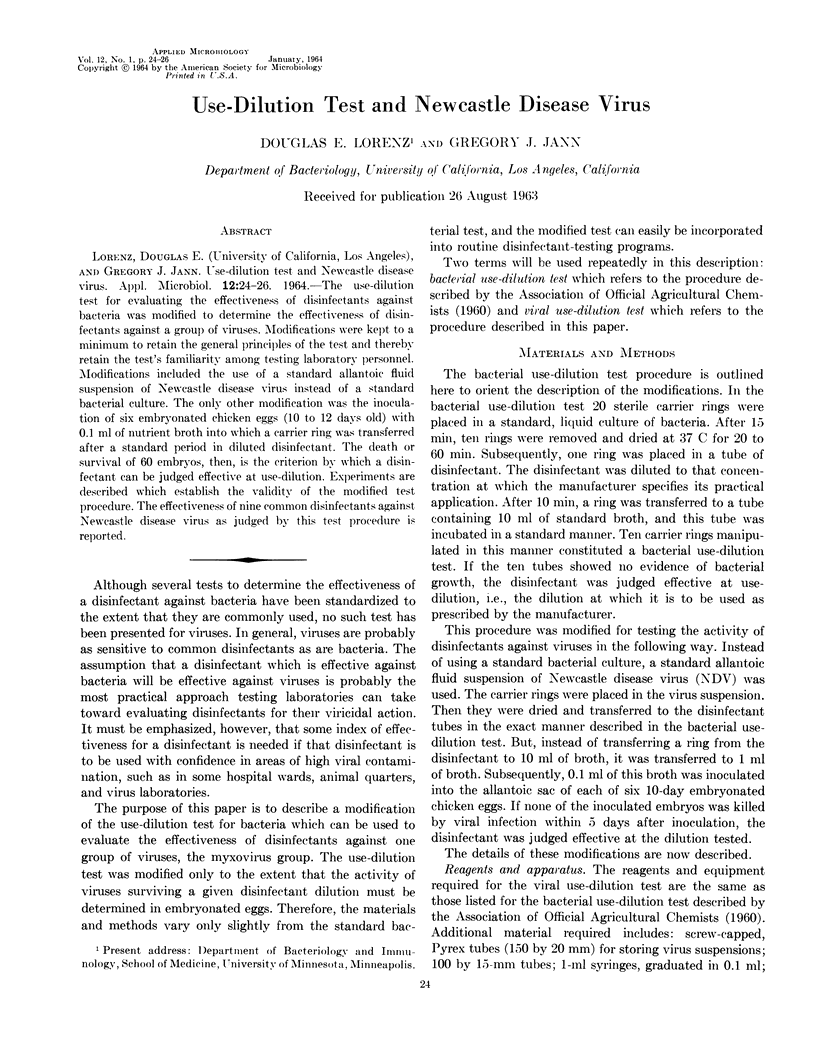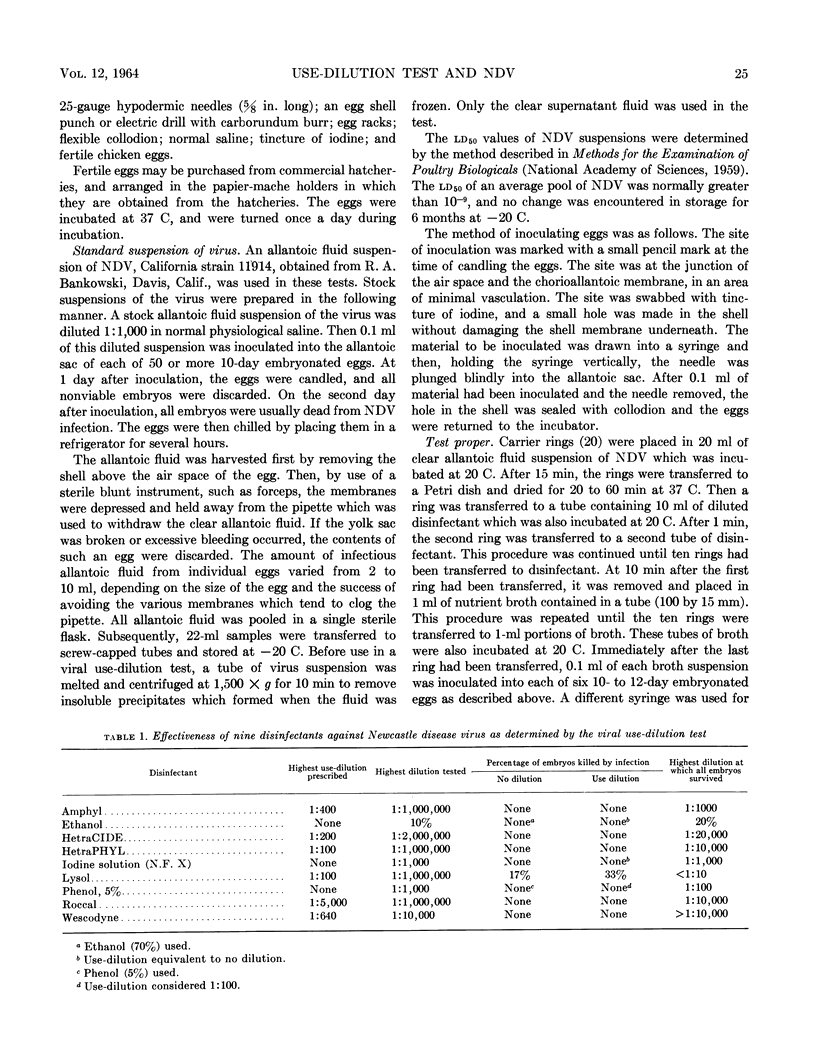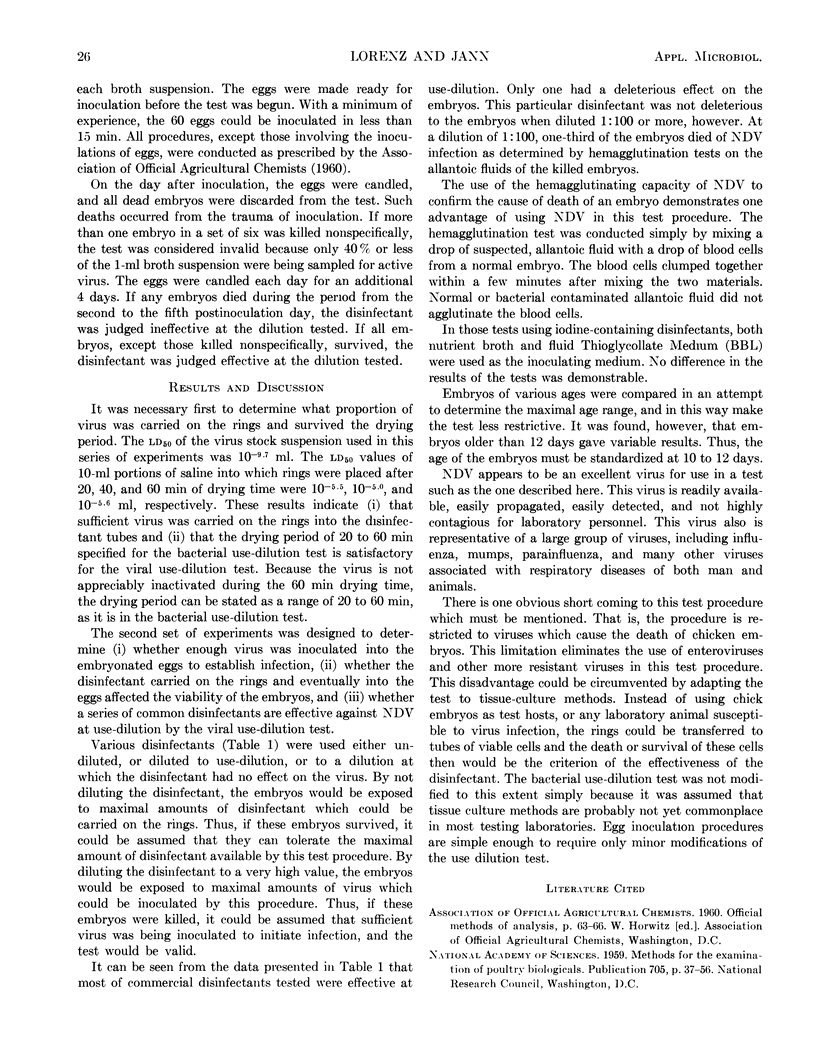Abstract
The use-dilution test for evaluating the effectiveness of disinfectants against bacteria was modified to determine the effectiveness of disinfectants against a group of viruses. Modifications were kept to a minimum to retain the general principles of the test and thereby retain the test's familiarity among testing laboratory personnel. Modifications included the use of a standard allantoic fluid suspension of Newcastle disease virus instead of a standard bacterial culture. The only other modification was the inoculation of six embryonated chicken eggs (10 to 12 days old) with 0.1 ml of nutrient broth into which a carrier ring was transferred after a standard period in diluted disinfectant. The death or survival of 60 embryos, then, is the criterion by which a disinfectant can be judged effective at use-dilution. Experiments are described which establish the validity of the modified test procedure. The effectiveness of nine common disinfectants against Newcastle disease virus as judged by this test procedure is reported.
Full text
PDF




